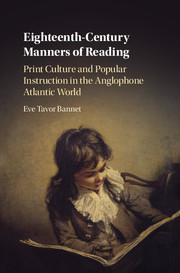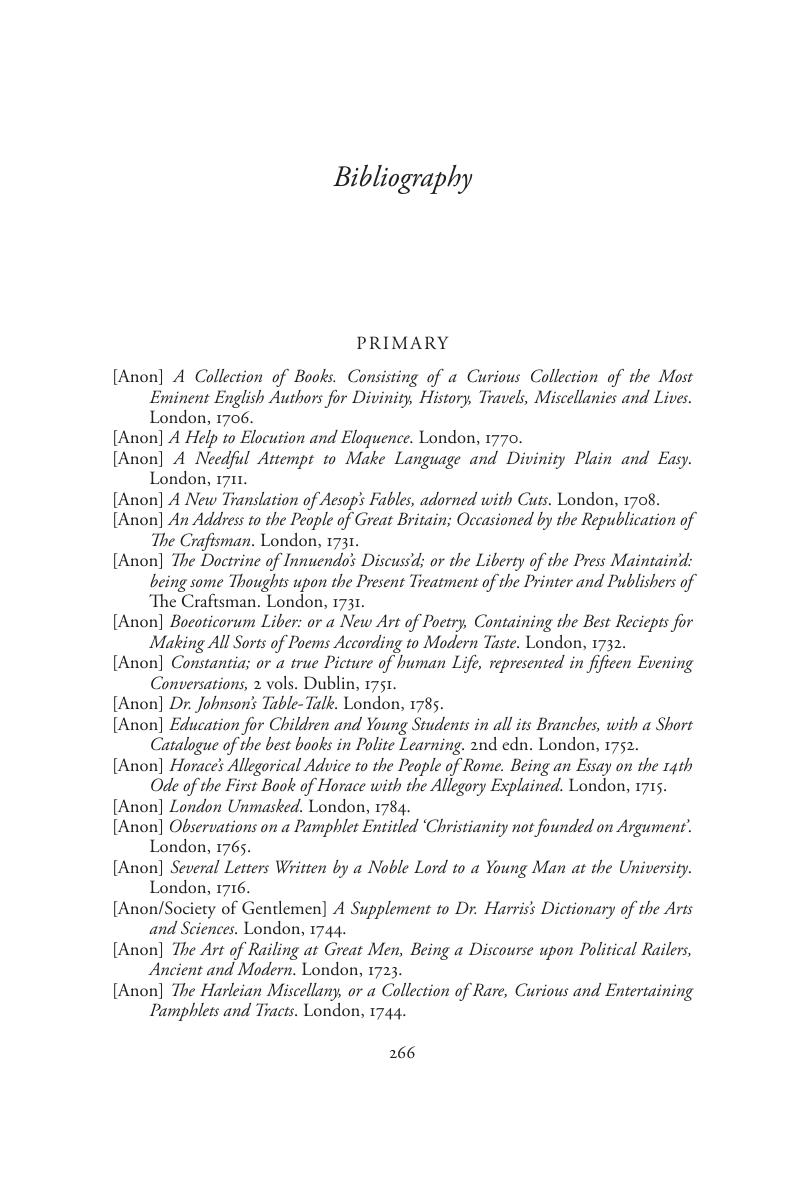 Eighteenth-Century Manners of Reading
Eighteenth-Century Manners of Reading Book contents
- Eighteenth-Century Manners of Reading
- Eighteenth-Century Manners of Reading
- Copyright page
- Contents
- Figures
- Acknowledgments
- Introduction
- Chapter 1 The ABCs of Reading
- Chapter 2 Arts of Reading
- Chapter 3 Polite Reading
- Chapter 4 Ordinary Discontinuous Reading
- Chapter 5 Reading Secret Writing
- Afterword
- Bibliography
- Index
- References
Bibliography
Published online by Cambridge University Press: 27 October 2017
- Eighteenth-Century Manners of Reading
- Eighteenth-Century Manners of Reading
- Copyright page
- Contents
- Figures
- Acknowledgments
- Introduction
- Chapter 1 The ABCs of Reading
- Chapter 2 Arts of Reading
- Chapter 3 Polite Reading
- Chapter 4 Ordinary Discontinuous Reading
- Chapter 5 Reading Secret Writing
- Afterword
- Bibliography
- Index
- References
Summary

- Type
- Chapter
- Information
- Eighteenth-Century Manners of ReadingPrint Culture and Popular Instruction in the Anglophone Atlantic World, pp. 266 - 287Publisher: Cambridge University PressPrint publication year: 2017


